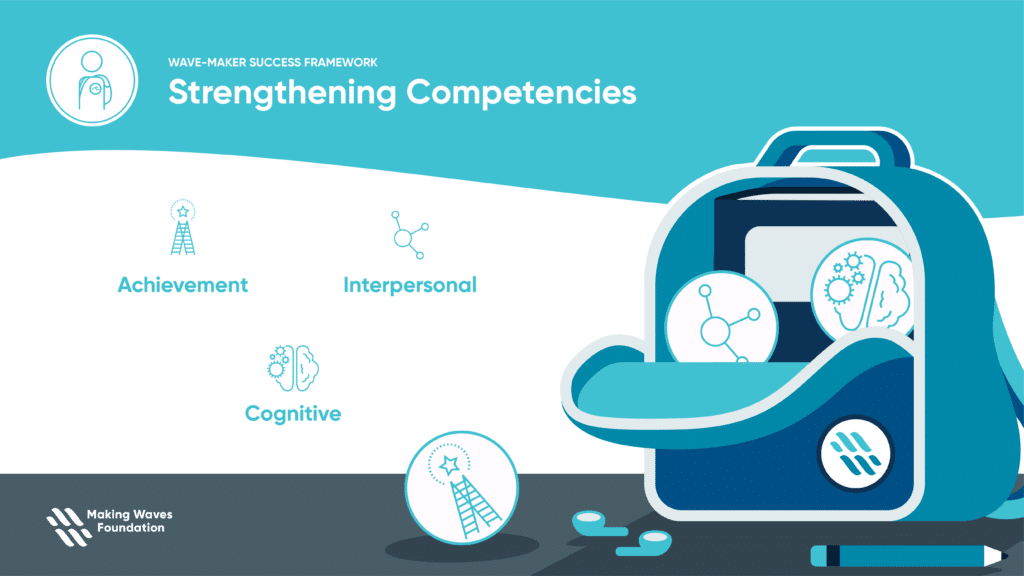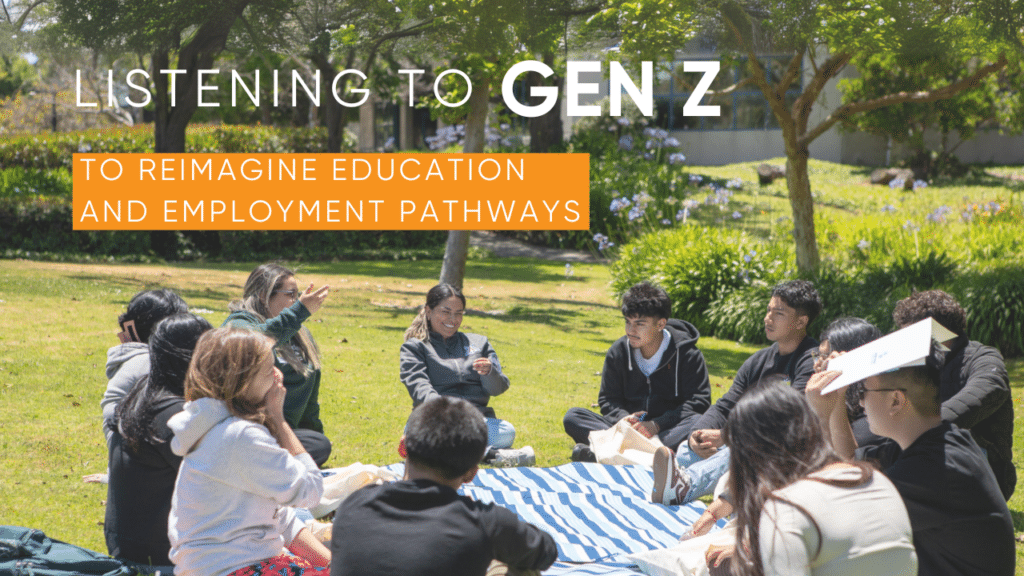
Strengthening Competencies: Achievement

For realizing goals
Adaptability
Being flexible when things change
Change is a constant in life. The world around us is always evolving, and we have to evolve with it if we want to stay ahead of the curve. That’s why adaptability is such an important quality to have.
Think about it this way: if you’re not adaptable, you’re going to get left behind. It’s as simple as that. To be successful in life, you need to be able to roll with the punches and adapt to whatever comes your way.
Why adaptability matters
Adaptability matters because it’s a reflection of our ability to change. And change is essential for growth. If we’re not growing, we’re not moving forward in life. We’re just stuck in the same place, doing the same things over and over again.
It’s important to note that adaptability isn’t just about being able to change when circumstances require it. It’s also about being open to change — welcoming it, even. People who are resistant to change will never be able to fully capitalize on opportunities that come their way. They’ll always be one step behind those who are willing to embrace change and adapt to new situations.
How to become more adaptable
If you’re not naturally adaptable, don’t worry—it’s a quality that can be developed over time with effort and practice. Here are a few tips for becoming more adaptable:
1. Be open-minded
One of the first steps to becoming more adaptable is opening your mind up to new possibilities. If you’re close-minded, you’re never going to be able to adapt because you’ll only ever see things one way. But if you’re open-minded, you’ll be able to see both the good and the bad in any given situation, which will give you a better chance of finding a solution that works for you.
2. Be flexible
Another important quality for adaptation is flexibility. If you’re inflexible, you’ll find it difficult to make changes because you’ll always want things to stay the same. But if you’re flexible, you’ll be more willing to try new things and experiment with different approaches until you find something that works for you.
3. Be proactive
Being proactive means taking initiative and being proactive instead of reactive when faced with change. If you’re reactive, you’ll wait for things to happen before taking action, which will put you at a disadvantage since by then it might already be too late. But if you’re proactive, you’ll take action as soon as something happens so that you can stay ahead of the curve instead of falling behind.
4. Be resourceful
Being resourceful means being able to find creative solutions when faced with problems or obstacles. If you’re not resourceful, chances are good that you’ll give up when things get tough instead of finding a way around the problem or obstacle. But if you’re resourceful, nothing will stop you from achieving your goals because you’ll always find a way to overcome any obstacle in your path.
5. Be resilient
Resilience is key when it comes to adaptation because it allows us to bounce back from setbacks quickly and keep moving forward despite setbacks or challenges. If we’re not resilient, we’ll dwell on our failures and let them hold us back from trying again or moving on from the situation. But if we’re resilient, we’ll pick ourselves up after every setback and keep going until we achieve our goals regardless of how many times we fail along the way.
Adaptability is an important quality because it allows us to grow and move forward despite setbacks or challenges. Fortunately, being adaptable is something that can be practiced and developed over time. By following the tips above, you can start down the path toward becoming more adaptable, and once you become more adaptable, the sky’s the limit of what can be achieved!
Growth Mindset
Believing you can improve your abilities
Everyone has a different mindset when it comes to learning. Some people believe that their abilities are set in stone, while others believe that they can improve with effort and practice. This difference is called a “growth mindset” or a “fixed mindset.”
Let’s take a closer look at the difference between these two mindsets and how they can affect your success in school.
Fixed mindset
- People with a fixed mindset believe that their abilities are set in stone. They think that you are either “smart” or “dumb,” and there’s nothing you can do to change it.
- People with a fixed mindset often give up easily because they think that if they can’t do something perfectly, it’s not worth doing at all.
- People with a fixed mindset are more likely to play it safe, because they believe that making a mistake will make them look bad and they will never be able to improve.
- People with a fixed mindset see setbacks as permanent and give up easily.
Growth mindset
- People with a growth mindset believe that their abilities can be improved with effort and practice. They know that intelligence is not fixed, and that everyone has the ability to get smarter if they work hard enough.
- People with a growth mindset are more likely to take risks, because they believe that they can learn from their mistakes and become better as a result.
- People with a growth mindset are also more resilient. They believe that setbacks are temporary and that they can overcome them with hard work.
- Finally, people with a growth mindset tend to be more successful than those with a fixed mindset. This is because they are always trying to improve and learn new things, while people with a fixed mindset often stay stuck in their ways.
A growth mindset is the belief that you can improve your abilities and intelligence. This is in contrast to a fixed mindset, which is the belief that your abilities and intelligence are set in stone.
People with a growth mindset believe that they can learn and grow with effort and practice. People with a fixed mindset believe that their abilities are static, and they will never improve no matter how much effort they put in.
There are many benefits to having a growth mindset, including increased success, resilience, and risk-taking. If you have a fixed mindset, try to adopt a growth mindset instead so that you can reach your full potential!
Planning and Prioritization
Creating a road map to reach a goal or complete a task; making decisions about what is and is not important to focus on
When it comes to goal-setting and task completion, two of the most important things you can do are to plan and prioritize. Creating a road map to reach a goal or complete a task is essential in order to avoid getting sidetracked.
Just as important is making decisions about what is and isn’t important to focus on. In this article, we’ll explore the importance of both planning and prioritizing.
Why plan?
One of the main reasons why planning is so important is that it helps you save time. When you know what you need to do and have a roadmap to follow, you can avoid wasting time on activities that aren’t relevant to your goal. This is especially important when you’re working on a deadline.
Another reason why planning is key is that it allows you to stay organized and focused. Trying to complete a task without any sort of plan can be overwhelming, leading to lost productivity and frustration. But if you take the time to sit down and map out what needs to be done, you’ll be able to approach the task in a calm and systematic way.
Finally, planning helps reduce stress because it gives you a sense of control. When you know what needs to be done and have a plan for doing it, you’ll feel more confident and capable, which will in turn help reduce stress levels.
Why prioritize?
Prioritizing is important because it allows you to focus your time and energy on the things that are most important. If everything is a priority, then nothing is really a priority. But if you take the time to sit down and figure out what needs to be done first, second, third, etc., you will save yourself time and stress in the long run.
How do you plan and prioritize?
Now that we’ve gone over some of the reasons why planning and prioritizing are so important, let’s take a look at how you can actually do it.
1. Identify your goal
The first step is to identify your goal. What is it that you want to accomplish?
2. Break your goal into smaller steps
Once you have a clear objective in mind, you can start breaking down the steps that need to be taken in order to reach that goal.
3. Prioritize the steps you’ll take
Once you have all of your tasks laid out, it’s time to start prioritizing them. Not all tasks are created equal, so it’s important to figure out which ones are the most important and need to be completed first. To do this, ask yourself which tasks are time-sensitive, which ones are required for the completion of other tasks, and which ones will have the biggest impact if they’re completed successfully.
Planning and prioritizing are essential skills in today’s fast-paced world. If you want to achieve your goals and complete your tasks efficiently, taking the time to develop a plan is crucial. By knowing what needs to be done and putting together a roadmap for success, you can save yourself time, stay organized and focused, and reduce stress levels.
So next time you’re faced with a daunting task, remember the importance of planning and prioritize accordingly!
Resilience
Passion and perseverance for long-term goals, including managing through failure
What is resilience? Resilience is the ability to recover from or adjust easily to misfortune or change. It’s the strength and ability to bounce back after something difficult or challenging has happened.
We all face difficulties and setbacks in life. And how we respond to these challenges can have a big impact on our overall wellbeing. Those who are resilient tend to cope with stress and adversity in a more positive way. They’re able to adapt and bounce back from difficult situations more quickly than those who aren’t as resilient.
Developing resilience isn’t about being tougher or hiding your emotions. It’s about finding healthy ways to cope with the stress and challenges that are a normal part of life. And it’s something that anyone can do.
How to develop resilience
There are many things you can do to build resilience. Some involve changing the way you think about yourself and your situation. Others involve changing your behavior. You may need to try different things until you find what works for you.
1. Develop a support network
One of the most important things you can do is develop a support network—a group of people you can rely on when times are tough. These could be friends, family, co-workers, or mentors. Talking to someone who understands what you’re going through can make a big difference.
2. Take care of yourself
It’s also important to take care of yourself physically and emotionally. Eating a healthy diet, getting regular exercise, and getting enough sleep are all important for maintaining your resilience in the face of stress. Taking time out for activities that make you happy—such as reading, spending time with friends, or taking a yoga class—can also help reduce stress and promote resilience.
3. Have realistic expectations
Don’t expect things to always go your way—accept that there will be setbacks and hardships along the way.
4. Don’t be afraid of failure
Embrace failure as a learning opportunity and use it as motivation to keep going.
Resilience is a key ingredient for success in life. It’s the ability to recover from setbacks and keep going even when times are tough. And it’s something that anyone can develop with a little effort. So if you’re looking for ways to become more resilient, start by building a supportive network, taking care of yourself physically and emotionally, having realistic expectations, and overcoming fear of failure.
These things will help you weather any storm that comes your way.
Responsibility
Owning actions and outcomes
In life, we are constantly faced with choices. With every choice we make, we are also choosing the consequences that come with it. For better or for worse, our choices shape our lives. That is why responsibility is so important.
Being responsible means being in control of our choices and owning the outcomes that result from them. It is about taking charge of our lives and making decisions that will lead to positive outcomes. When we are responsible, we are empowered to create the life we want for ourselves.
We are no longer at the mercy of circumstance; instead, we are in control of our own destiny.
The Benefits of Responsibility
1. Create the life you want for yourself
There are many benefits to taking responsibility for our choices. For one, it helps us to create the life we want for ourselves. We all have dreams and goals that we want to achieve, but sometimes it can feel like life is just happening TO us instead of FOR us. When we take responsibility for our choices, however, we can start making decisions that will lead us closer to our goals. We become proactive instead of reactive; instead of letting life happen to us, we start making things happen for ourselves.
2. Personal growth
Another benefit of responsibility is that it leads to personal growth. Every time we make a choice and accept the consequences that come with it, we learn and grow as individuals. We learn what works for us and what doesn’t; we learn what makes us happy and what doesn’t. Over time, this process of trial and error helps us to develop into well-rounded adults who are capable of making sound decisions and achieving success in life.
3. Inner peace
Lastly, responsibility leads to inner peace. When we take responsibility for our lives, we no longer spend our days worrying about what might happen or dwelling on past mistakes. Instead, we focus on the present moment and making the best choices possible in each situation. This allows us to live in the moment and enjoy our lives more fully. We also stop beating ourselves up over past mistakes; instead, we learn from them and move on.
Taking responsibility for our choices is one of the most empowering things we can do in life. It gives us control over our lives and allows us to create the life we want for ourselves. The next time you’re faced with a choice, big or small, think about the implications of your decision.
Ask yourself if you’re willing to accept responsibility for the outcome. If you are, then you’re on your way to taking control of your life and creating the future you want.
Self-efficacy
Belief and confidence in one’s ability to influence their own motivation and actions
We all have moments in our lives where we doubt ourselves. Whether it’s starting a new job, taking a difficult class, or going through a tough break-up, self-doubt is a natural part of the human experience. But what if we told you that there was a way to increase your belief in your own abilities? A way to boost your confidence and motivation? That way is called self-efficacy.
Self-efficacy is the belief and confidence in your ability to influence your own motivation and actions. In other words, it’s the faith you have in yourself to get things done. And research has shown that people with high self-efficacy are more likely to succeed than those with low self-efficacy.
So how can you increase your self-efficacy? Read on to find out!
3 ways to increase your self-efficacy
1. Set realistic goals for yourself
One of the quickest ways to kill your motivation is to set impossible standards for yourself. If you’re constantly setting goals that are out of reach, it’s only natural that you’ll start to doubt your ability to achieve them. So instead, focus on setting realistic goals that challenge you without being impossible. This will help you build a sense of accomplishment and boost your confidence over time.
2. Surround yourself with supportive people
We all know that feeling of being surrounded by people who believe in us—it’s amazing! And research has shown that having supportive relationships is one of the key predictors of high self-efficacy. So make an effort to surround yourself with positive people who will lift you up and help you reach your goals.
3. Be mindful of your inner dialogue
One of the most important things when it comes to building self-efficacy is paying attention to the things you say to yourself — aka, your inner dialogue. If you’re constantly putting yourself down or telling yourself that you can’t do something, it’s no wonder that you don’t have much faith in your abilities! So instead, try to be mindful of the things you say to yourself and make an effort to reframe negative thoughts into positive ones.
Self-efficacy is a powerful tool that can help you achieve anything you set your mind to. By setting realistic goals, surrounding yourself with supportive people, and being mindful of your inner dialogue, you can increase your self-efficacy and change your life for the better!
Co-authored with AI
Making Waves Education Foundation generated this text in part with artificial intelligence. Content has been reviewed, edited, and revised to our organization’s liking and we take ultimate responsibility for the content of this publication.
About Making Waves Education Foundation
At Making Waves, we are committed to educational equity. Making Waves Education Foundation is a Bay Area nonprofit that supports Making Waves Academy – a public charter school with more than 1,100 5th through 12th grade students – and leads college and career programming with more than 430 college students.
Knowing the opportunities that come with a college degree, we partner with historically underrepresented and underserved students to help make college affordable and graduation attainable. Centering the journeys of our students, our personalized approach includes college and career coaching, scholarships, and financial planning.
Our alumni network includes more than 730 college graduates, who earn their degrees and land jobs at more than twice the rate of their first-generation, low-income peers, with 85% graduating debt-free.







